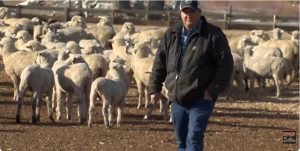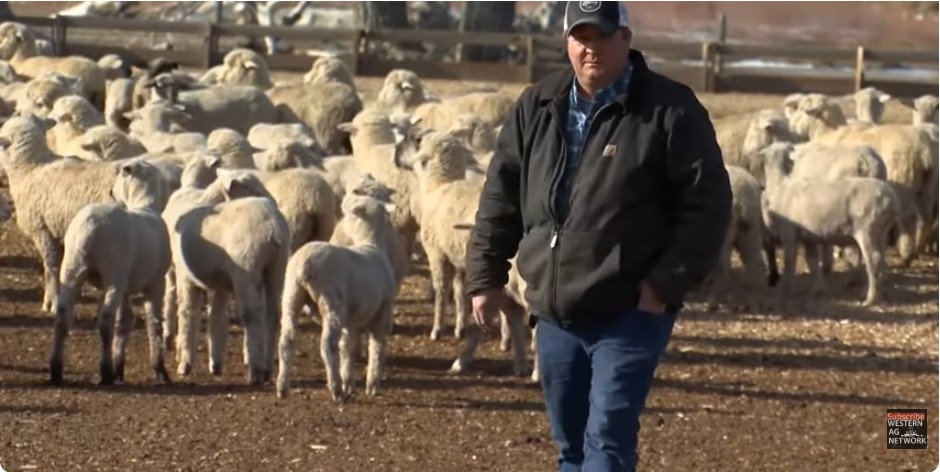
Report says imported lamb is displacing U.S. production, eroding profitability, and threatening the long-term viability of the domestic sheep industry
WASHINGTON, D.C. – The American Sheep Industry Association (ASI), the nation’s oldest livestock organization, has formally requested that the Office of the U.S. Trade Representative (USTR) initiate a global safeguard investigation into U.S. imports of lamb meat under Sections 201–202 of the Trade Act of 1974. ASI submitted this request on behalf of its 42 state associations and more than 100,000 farms and ranches.
U.S. sheep and lamb imports are under scrutiny due to a surge in shipments from countries like Australia and New Zealand, which domestic producers say is causing them “serious economic harm” and threatening their viability. ASI has formally asked the U.S. Trade Representative to investigate the imports under the Trade Act of 1974, citing data that shows imports have increased nearly 45% since 2020 and captured about 70% of the domestic market
According to ASI, imported lamb—often sold at lower prices—is undercutting American producers, packers, and ranch workers. The group also submitted a detailed report to federal officials outlining market data and evidence of injury to the U.S. industry, gathered from lamb companies in recent weeks.
ASI said it seeks federal intervention to address the serious economic injury imported lamb products are inflicting on American sheep producers. Imported lamb, often sold below domestic market prices, is displacing U.S. production, eroding profitability, and threatening the long-term viability of the domestic industry, the body said.
To support the request, ASI developed and submitted both a public and a confidential report to USTR detailing the market data, import trends, and financial injury gathered directly from U.S. lamb companies in recent weeks. Working under ASI’s direction, Kelley Drye & Warren LLP and Georgetown Economic Services LLC conducted the data collection, analysis, and preparation of the report.
The association said the ASI’s study show that U.S. lamb imports surged from 213.6 million pounds (469.9m kgs) in 2020 to 309.3 million pounds (680.4m kgs) in 2024. This was nearly a 45 percent increase, causing the US market share of domestically produced lamb to decline by more than nine percent. By 2024, imports captured about 70 percent of the domestic market, driven primarily by pricing disparities, the ASI said. Imported square-cut lamb shoulders were found to be priced an average of 10.8 percent lower than U.S. product, with some instances approaching a 19.5 percent discount.
ASI president and Montana producers Ben Lehfeldt said the investigation request is the culmination of months of ASI’s independent research and advocacy.
“We appreciate the lamb companies that have joined the effort to document the injury and provide confidence in our request that federal investigators will find similar severe injury.
“Our members have made it clear that immediate federal action is necessary to restore fair competition and protect America’s sheep producers,” he said.
On October 29, 2025, the ASI’s case was supported by USTA Chief Agricultural Negotiator Julie Callahan when she testified at her nomination hearing before the Senate Finance Committee. ASI said when asked about lamb imports at the hearing by Sen. John Barrasso of Wyoming, Dr Callahan indicated concern that U.S. lamb imports were undercutting U.S. producers and expressed an interest in reversing the domestic sheep industry’s long-running decline in US market share.
“We have farmers, second- and third-generation farmers—that are at risk of losing their ranches.
“They’re being outcompeted by imports,” she said.
ASI said it has been in regular communication with Dr Callahan and USTR staff, sharing data and analysis on the impact of rising lamb imports.
“This attention to the challenges facing domestic producers underscores the importance of fair trade and the need for federal action,” Lehfeldt said. “ASI will continue to lead this effort to protect U.S. producers and ensure the long-term health of America’s sheep industry.”
Both the industry’s formal petition and the Senate’s focus on lamb imports signal growing pressure in Washington to address the challenges facing America’s sheep producers.


